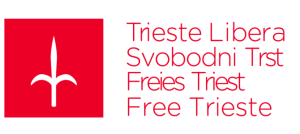Free Trieste’s position about the Italian Constitutional Referendum
(December 4th, 2016)

In the Free Territory of Trieste, the vote for the Italian Constitutional referendum of December 4, 2016 gives raise to complex legal questions which are completely different from those on the elections, or previous referenda.
It is three main problems that the administering government seems to have under-evaluated, while Free Trieste is ready to raise them after the vote.
The first problem is that the referendum proposes to change the constitutional legal order of the Italian Republic radically, this means changing the democratic guarantees under which the Governments of the United States and of the United Kingdom entrust, since 1954, the temporary civil administration of the present-day Free Territory of Trieste to the Italian Government, with the consent of the United Nations Security Council.
For instance, it is necessary that the constitutional guarantees offered by the administering Government are compatibile with the legal order of the State under provisional administration. The victory of the YES vote in the Italian referendum would make the two constitutional legal orders incompatible, and the special trusteeship mandate over the Free Territory entrusted to the Italian Government should be renegotiated.
The second problem is that the general principles of the Italian legal order, including constitutional principles, are extended to the legal system of the present-day FTT with Decree No. 100/1955 of the Italian Government’s Commissioner Generalo for the Territory of Trieste, being compatible with it.
But the changes to the Italian Constitution that would follow the victory of the YES vote cannot be extended to the Free Territory of Trieste, because they are not compatible with its democratic legal order.
The third problem is caused by a serious omission of the provisional Italian Government and of its careless Commissioner in Trieste, who “forgot” to extend with a proper decree the law that establishes the Italian Constitutional referendum to the Free Territory of Trieste.
This means that the votes of the citizens of the Free Territory of Trieste can be declared null and void and, if they prove to be numerically decisive, they can be also impugned by whoever as a cause that invalidates the whole referendum.
Indeed, this referendum’s validity does not depend on a percentage of voters, but the losing side can defend its position requesting the cancellation of the votes of the citizens of the Free Territory, or of the referendum as a whole.
If NO prevails, nothing changes, and the legal battle for the complete activation of the rights of the Free Territory of Trieste, of its citizens, of its residents and of its enterprise continues as before, unaffected.
However, if YES prevails, for the reasons we explained above, there would be an international dispute of constitutional nature between the provisional Government and the State under administration, which could be used to fasten the action for our rights.
In both cases the vote of the citizens of the Free Territory of Trieste in this Italian referendum is and remains a vote expressed under an automatic reservation of legal validity, making it unnecessary a campaign for the active or passive abstention form the vote.
Therefore, the citizens of the Free Territory of Trieste can decide whether voting or not in this referendum, without their vote affecting their rights nor the Free Territory and its international Free Port.
It is also for this reason that this time Free Trieste has not prepared forms for the abstention from the vote in this referendum. And, for the same reasons, the forms spread by some little groups of incapable imitators are useless and meaningless.
Our Press Note in PDF: LINK
Press Office of the Free Trieste Movement
